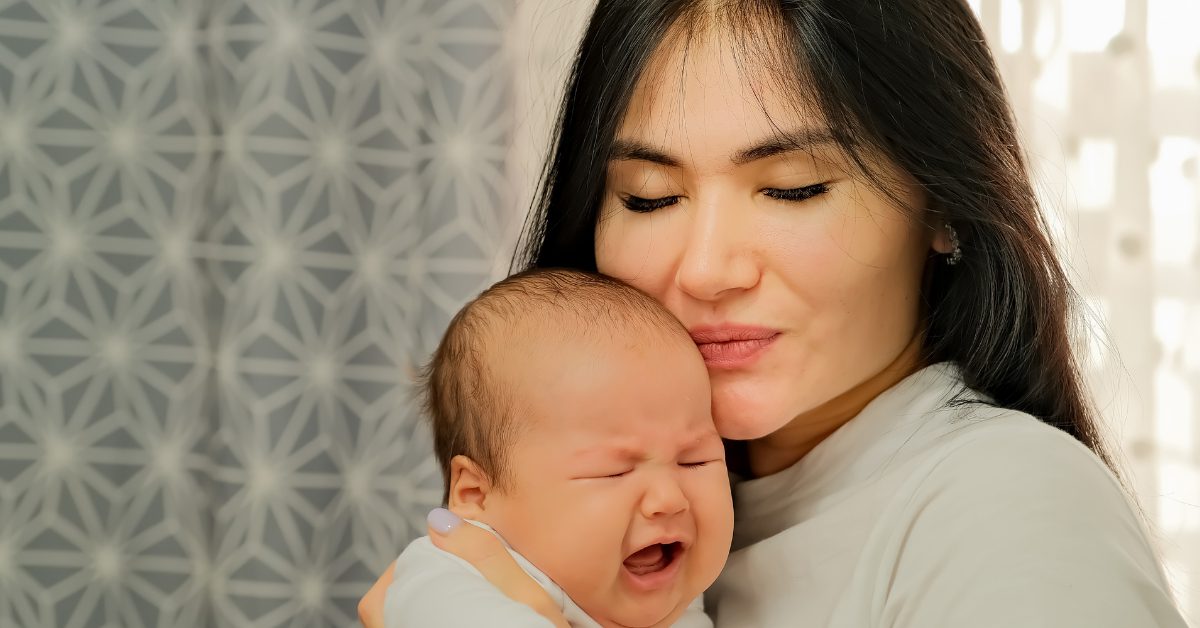Postpartum depression (PPD) is a common and often misunderstood struggle faced by many new mothers. It’s not just the occasional baby blues or mood swings that many women experience in the days following childbirth. PPD is a more severe and long-lasting form of depression that can hinder a mother’s ability to care for herself or her newborn. With the social pressure to be an ideal parent and the physical and emotional changes that accompany new motherhood, coping with postpartum depression is a serious challenge.
Yet, discussing PPD is often considered taboo, which isolates mothers and makes it difficult to admit that they need help. However, acknowledging and addressing PPD is crucial for mental and emotional well-being.
While medication can be an effective solution, it may not always be an ideal choice for everyone. Some mothers may prefer alternative, natural methods to cope with PPD so they can experience the joy and fulfillment of new motherhood. This article will discuss five ways to cope with postpartum depression which can be tried first or used alongside therapy and medication,
By sharing a range of ideas and support options, readers can find their unique path to overcoming postpartum depression without the use of medication. Maintaining an empathetic and compassionate tone throughout the article is essential to maintain trust with our readers, making them feel understood and supported during this emotional time. In addition, incorporating expert advice alongside personal experiences will create a valuable resource for new mothers experiencing PPD.
Connect and Communicate with Others
One of the most effective ways to process all the emotions you are experiencing is by sharing your feelings and experiences with others. This can be with friends, family, or other new mothers who’ve faced similar challenges. Joining a support group can be incredibly beneficial because it allows you to connect with others who can empathize with your feelings and offer practical advice.
In addition, communicating with a therapist or counselor offers a safe space to express your thoughts and emotions freely, without fear of judgment. Professional guidance can help you explore the root causes of your depression and provide tailored strategies for coping. Remember, you don’t have to suffer in silence. Opening up to others can help you feel less alone and more understood in your journey to overcome PPD. Please be mindful to choose a therapist who specializes in treating maternal mental health issues. Visit our What Helps section on how to chose a therapist.
Practicing Self-Care and Mindfulness
Postpartum life can be hectic, and it’s easy to forget about taking care of yourself when you’re busy caring for a newborn. However, practicing self-care is essential to managing postpartum depression. Make sure you’re eating well-balanced meals, staying hydrated, and getting enough sleep. Schedule some time daily or weekly to indulge in activities that rejuvenate and relax you, such as reading, taking a bath, or going for a walk.
Mindfulness practices, such as deep breathing, meditation, or progressive muscle relaxation, can help reduce stress and provide relief from depressive symptoms. Even a few minutes of focused attention to your thoughts and physical sensations each day can bring about a sense of calm and emotional balance that’s essential to mental well-being.
Staying Active and Incorporating Exercise
Exercise has been proven to boost mood and relieve symptoms of depression. While it might seem challenging to find time for physical activity when caring for a newborn, incorporating even small amounts of movement into your daily routine can make a significant difference. This can include gentle stretches, short walks, or postnatal yoga.
As you gradually regain strength post-birth, you can increase the intensity and duration of your workouts. Besides improving your mental health, physical activity also promotes better sleep, increases energy levels, and improves overall well-being.
Always consult with your healthcare provider before starting a new exercise routine, especially after giving birth. They can recommend specific exercises tailored to your individual needs and recovery progress.
Prioritizing Nutrition for Mental Health
A well-balanced, nutrient-dense diet plays a critical role in maintaining mental health and alleviating postpartum depression symptoms. Hormonal fluctuations during and after pregnancy can impact mood and energy levels, making it crucial to pay attention to the quality of your diet.
Focus on consuming whole, unprocessed foods, rich in essential nutrients: fresh fruits, vegetables, whole grains, lean proteins, healthy fats, and adequate water intake. Eating regular meals and snacks throughout the day will help stabilize blood sugar levels and sustain energy throughout the day.
Specific nutrients that support mental health include omega-3 fatty acids, found in fish, chia seeds, and walnuts, and B vitamins, commonly found in whole grains and leafy greens. Incorporating these foods into your diet may help improve mood and cognitive function. Consult with a registered dietitian or healthcare professional to develop a nutrition plan tailored to your physical and mental health needs.
Exploring Complementary Therapies
Complementary therapies, such as acupuncture, massage, aromatherapy, or therapeutic touch, can offer relief as these holistic approaches may promote relaxation, reduce stress, and enhance overall well-being.
Acupuncture, in particular, has demonstrated potential benefits in reducing depressive symptoms and improving sleep for new mothers. Like any complementary therapy, it’s essential to consult with a licensed practitioner who’s experienced in treating postpartum depression to ensure safe and effective treatment.
Conclusion
Coping with postpartum depression without medication is possible for many new mothers, with proper support and guidance. By connecting and communicating with others, practicing self-care and mindfulness, staying active, prioritizing nutrition, and exploring complementary therapies, you can pave the way for a healthy and fulfilling journey as a new parent.
Struggling with postpartum depression? The Postpartum Depression Alliance of Illinois is here to help. Discover 5 ways to cope with postpartum depression. Our postpartum depression support services are tailored to meet your unique needs and help point you in the right direction to start your journey towards healing and recovery.




